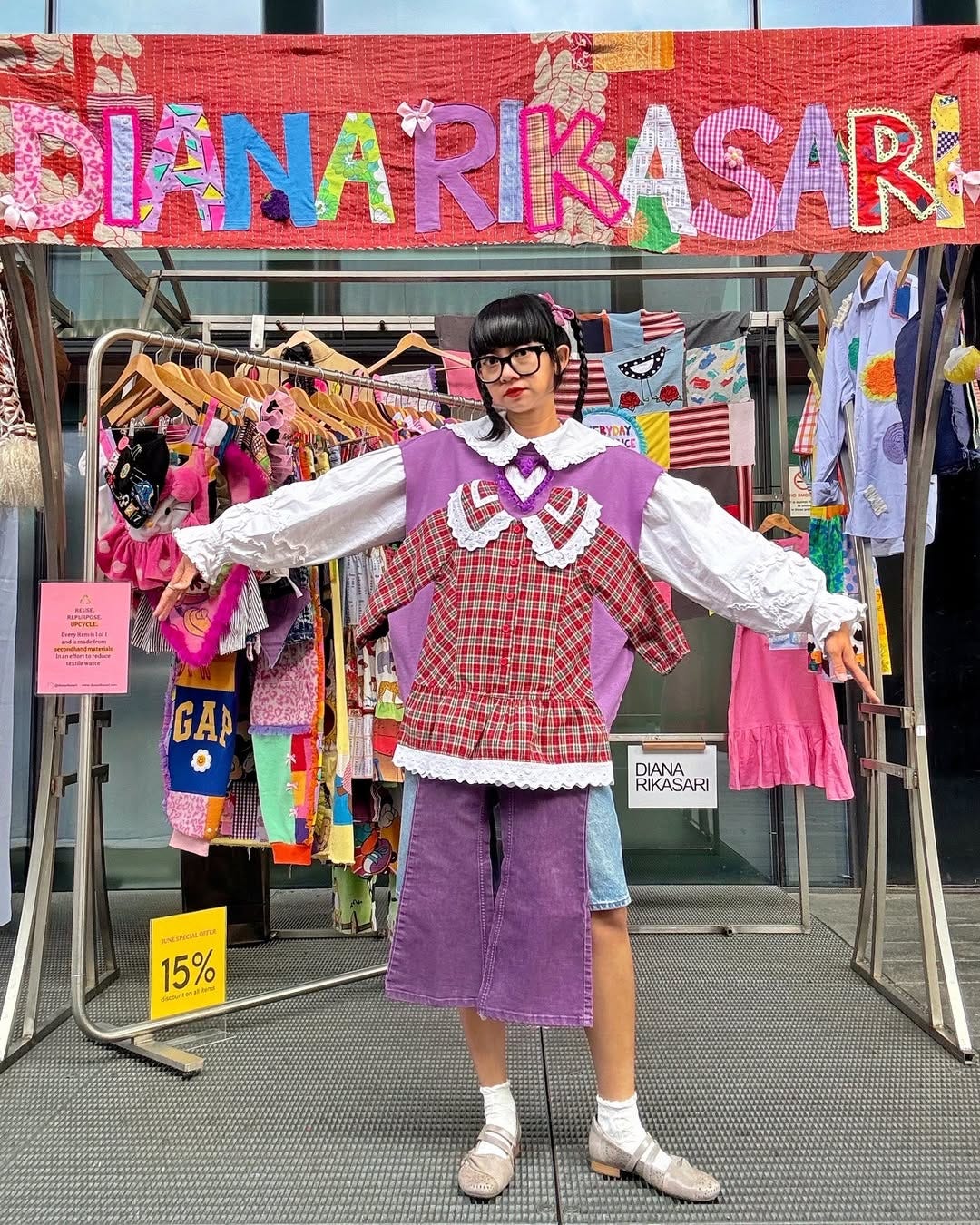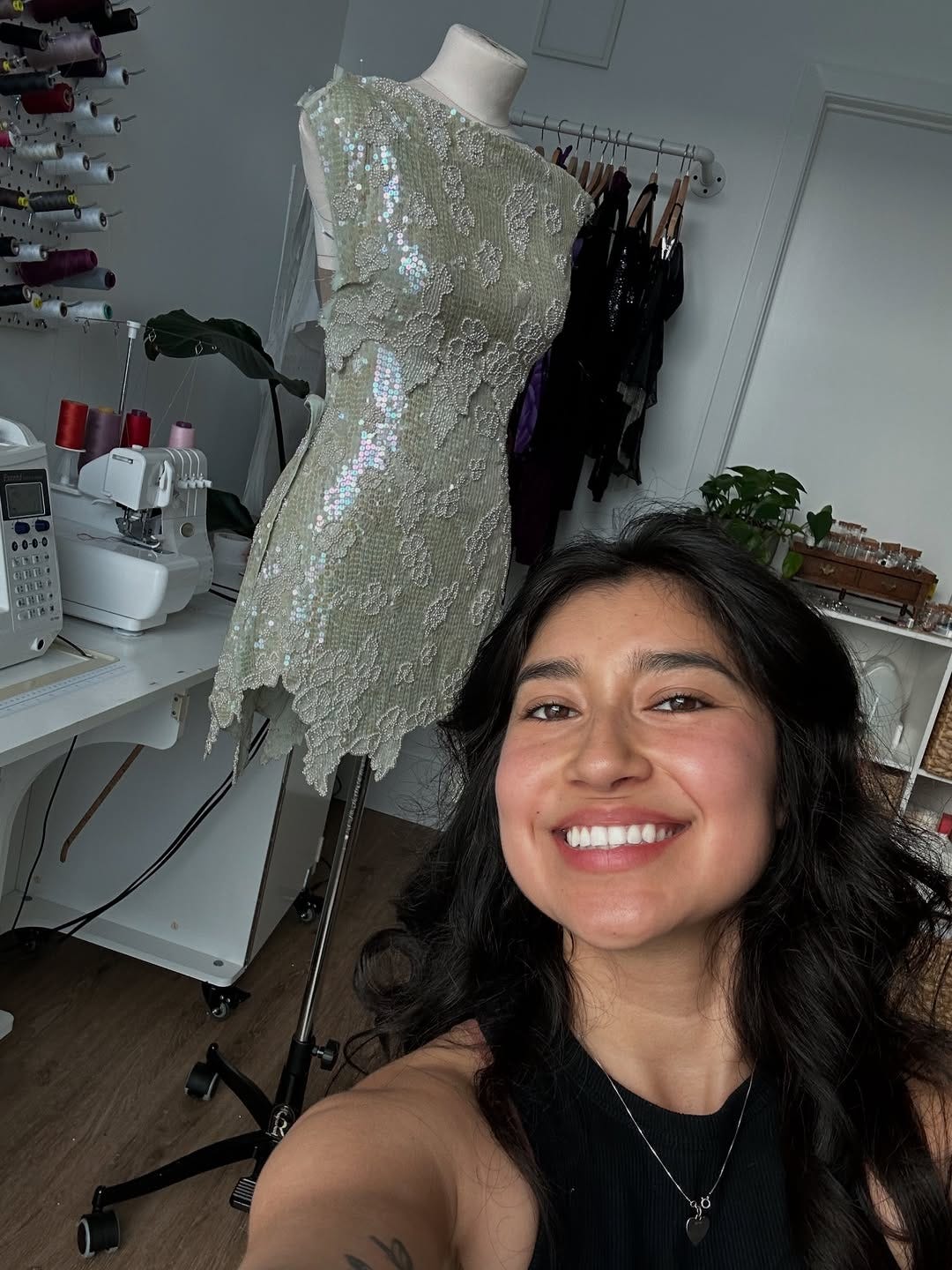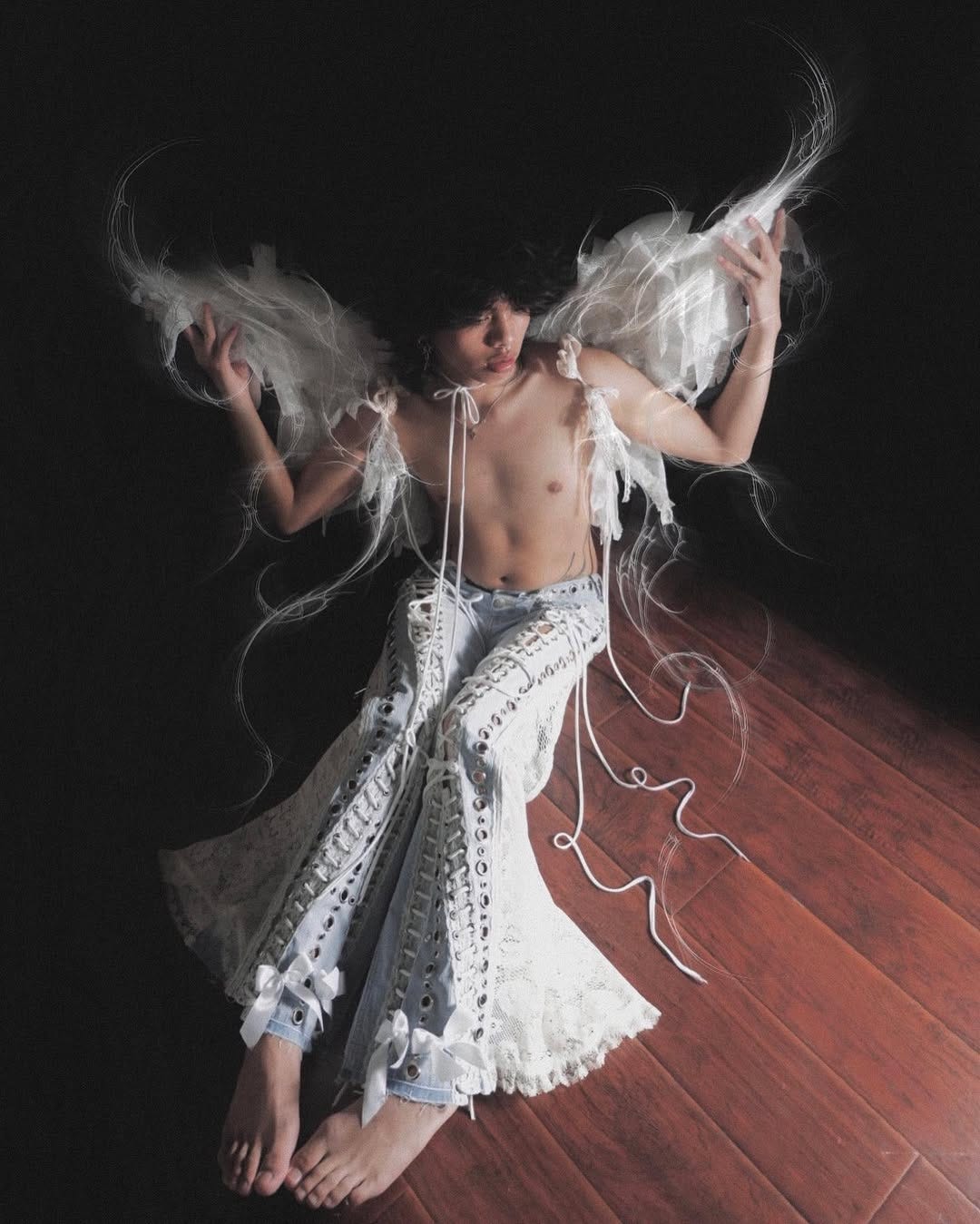In the realm of sustainable fashion, upcycling stands as one of the truest circular practices, transforming what already exists into something entirely new, without the need for raw materials. Rather than extracting materials from our planet, upcycling draws from the discarded and turns formerly unsexy pieces or old fabric into new material. While the term may feel trendy today, the practice of making do, reimaging, and repurposing is far from new. For many BIPOC communities, upcycling has long been a cultural norm—born out of necessity and an ode to resourcefulness.
Now, a new wave of BIPOC designers are pushing upcycling forward, not just as the sustier choice but as a more ethical design philosophy. These seven creatives are challenging traditional ideas of what constitutes “raw material” and opening up new dimensions to how we imagine and construct fashion.
Diana Rikasari is an Indonesian author and fashion designer known for her colorful, print-heavy upcycled creations. Her playful aesthetic blends humor with a strong ethical backbone; she views her practice as a form for style to speak to mindfulness and expression.
Sitoë Thiam is a San Diego-based fiber artist and mechanical engineer behind Unknot, a design studio exploring the intersections of sustainability, structure, and intuitive craft. Specializing in woven and knotted functional forms, they develop accessible biomaterials and experiment with the fiber manipulation of found materials.
LOTI is a textile studio that combines traditional Peruvian craftsmanship with reuse practices to create garments from natural fibers like cotton, alpaca, and merino wool. Founded by Lottie Bertello, LOTI focuses on slow fashion that honors the materials’ heritage and connection between wearer and maker.
You may know her from her “Thrift Flip Thursday” series, Tracy Garcia is a fashion designer and content creator best recognized for her upcycling tutorials. She is the founder of Transformations by Tracy, a platform where she shares DIY projects, thrift flips and sewing patterns.
London-based upcycler Dani Dawks transforms all kinds of discarded materials, from IKEA bags to bedspreads, into pieces that celebrate individuality and resourcefulness. As a presenter, workshop host, and the voice behind The Sew Flipping Extra Podcast, she inspires others to embrace sustainable creativity and personal style.
Founded in 2019 by California-based Filipino creative Wyatt, Clouwdez manifests his passion for vintage and Y2K fashion into a sustainable, upcycled brand. He started out reselling vintage pieces on Depop, transforming them into unique, imperfect garments. Each piece is made with locally sourced deadstock or second hand materials.
Sustainable besties Andrea Cheung and Devin Perry founded Street Grandma in 2020, drawing inspiration from their shared upbringing in the San Gabriel Valley. The brand explores themes of masculinity, playfulness, and girlhood through oversize silhouettes and intentional designs made from deadstock and organic materials.
What are your favorite BIPOC upcyle designers?
Nature is gay asf
Though lawmakers, pundits, and detractors fear it, queerness is ubiquitous and undeniable (ahem, we are here & we are queer). Society has worked hard to apply binary and heteronormative theory to our natural world, but nature is gay asf, baddies. Biologists, ecologists, and environmental activists are uncovering examples of queerness in nature.
















I love the designers, especially Clouwdez!! His designs are so dreamlike I’m salivating.
Streetgrandma is interesting, yet I can only wonder how much their “oversized” collection can reach, as part of the fame in “oversized” clothing is Skinny supremacy. While I love the whimsy SG has, the notion’s in my mind for sure. Bigger pieces are more forgiving for Disabled Baddies (like my sister and Grandmothers), so I’m interested. Sustainable fashion means fashion for everyone, not just Skinny Rich People.